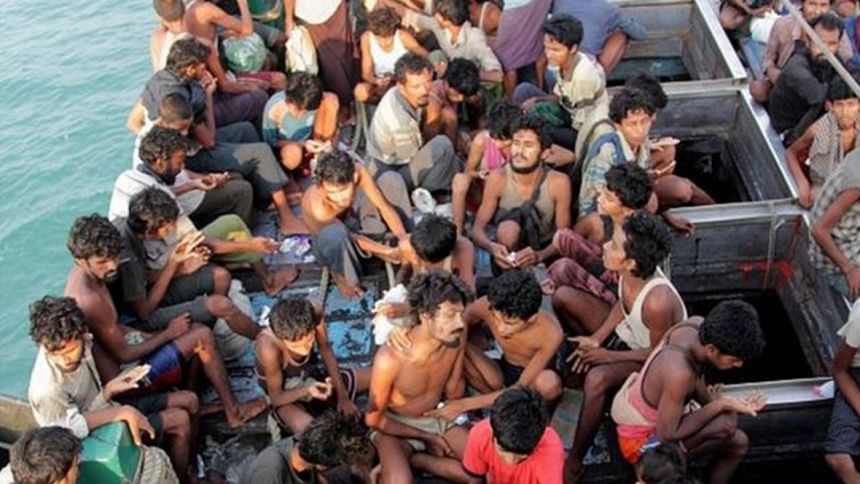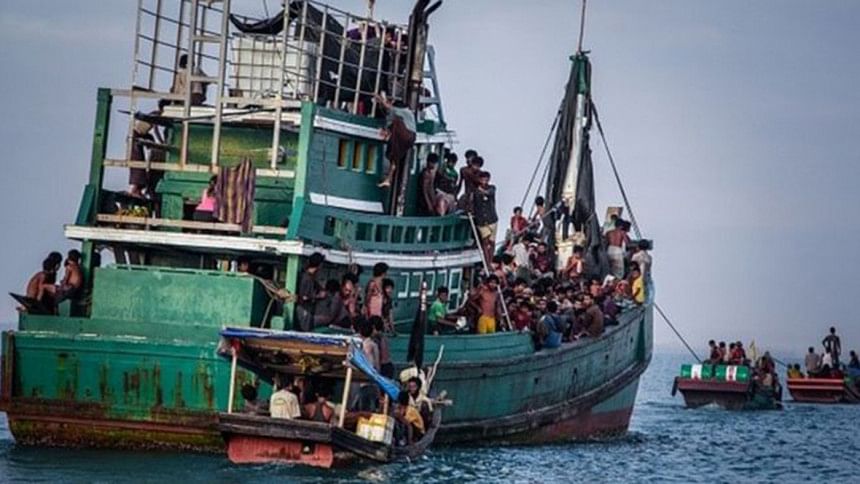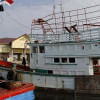Amnesty warns over Asia migrant boat crisis

More than 1,000 people are still unaccounted for after the migrant boat crisis in the Andaman Sea earlier this year, a new report has said.
Amnesty International said Bangladeshi migrants and persecuted Rohingya fleeing Myanmar faced "hellish" conditions on trafficking boats.
The report is based on interviews with 100 refugees who reached Indonesia.
It comes as traffickers are expected to resume operations when the monsoon season ends in October.
The UN estimates that 370 people died between January and June, as thousands of people took to boats across the region.
But Amnesty disputed this, saying eyewitnesses saw dozens of large boats full of people. Only five boats were said by the UN to have landed in Indonesia and Malaysia, it said.
"Hundreds - if not thousands - of people remain unaccounted for, and may have died during the journeys or have been sold for forced labour," the report said.
It says "virtually every Rohingya woman, man and child said they had either been beaten themselves, or had seen others suffer serious physical abuse".
'Step up response'
Rohingya have long been fleeing Myanmar's Rakhine state, where they are seen as Bangladeshi migrants by the Buddhist majority and denied citizenship by the government.
In May, a crackdown by Thai authorities on major trafficking routes through its territory to Malaysia and Indonesia led to people-smugglers abandoning their human cargo at sea
Thousands of people were stranded in the ocean with no food, water or medical care.
After weeks of maritime authorities from Indonesia, Malaysia and Thailand towing the boats into each other's waters, eventually some of the migrants that made it to land were allowed to stay in refugee camps in Indonesia and Malaysia.
According to Amnesty, action taken by regional governments to address the crisis have done little to stop the criminal networks who engage in human trafficking, nor have they persuaded migrants to stop making the crossing.
"With the monsoon over and a new 'sailing season' already underway, thousands more could be taking to boats and Amnesty is urging regional governments to urgently step up their response to the crisis," said Anna Shea at Amnesty International.


 For all latest news, follow The Daily Star's Google News channel.
For all latest news, follow The Daily Star's Google News channel. 




Comments